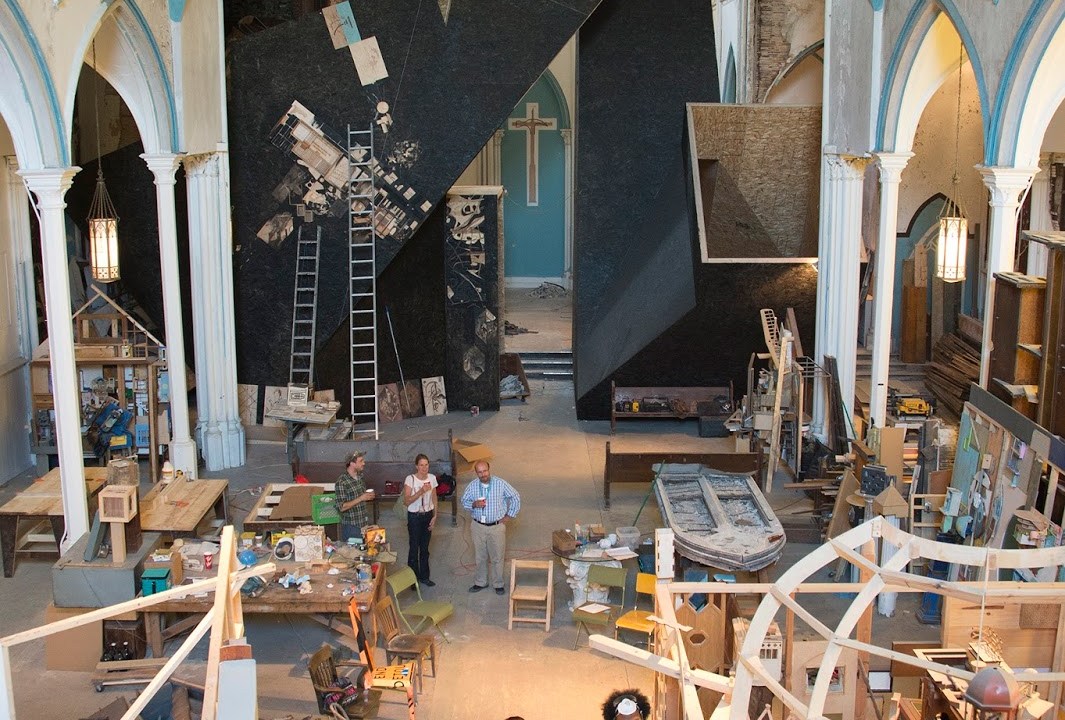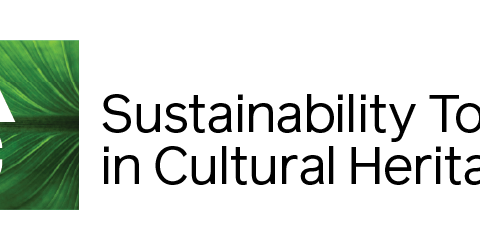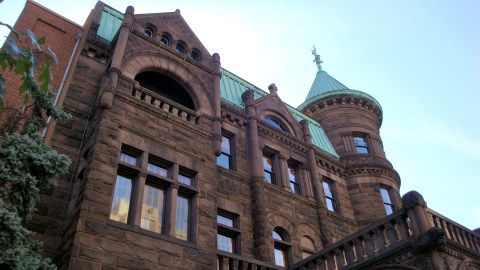One topic I’m researching now is how museums deploy their assets—tangible and intangible—to promote equity in their communities. In today’s guest post Erin Sheets and Russell Davidson tell us how the Albright-Knox Art Gallery used its reputation, knowledge, and community connections to create a sustainable program helping unemployed women and men acquire skills, and jobs.
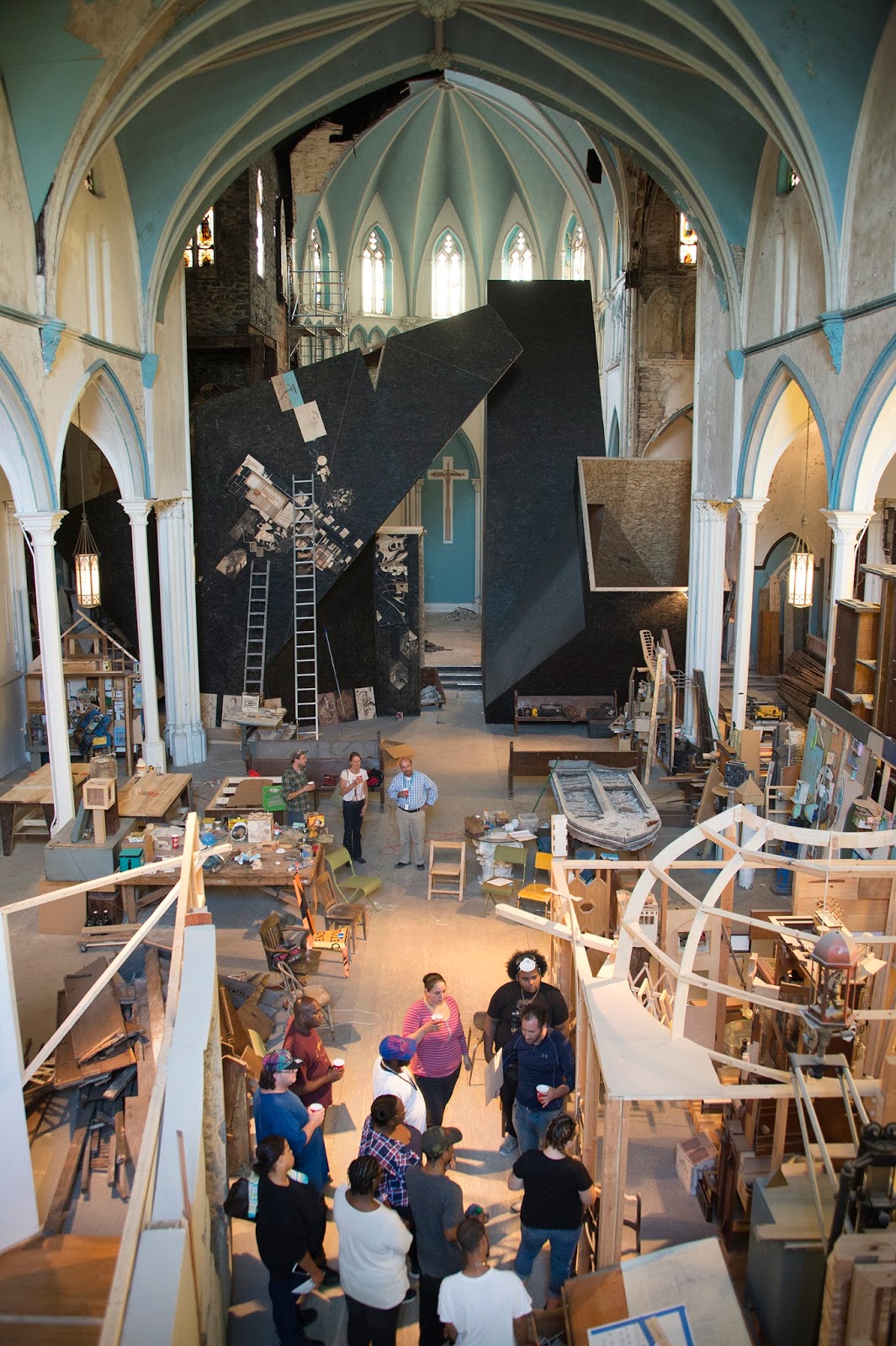 |
Orientation on the first day of class
at Assembly House 150 |
“Why is the museum involved in a workforce-development program?” We’ve heard that comment more than once since helping to establish SACRA (Society for the Advancement of Construction-Related Arts). The heart of the matter is this: we believe that art has the power to generate creative approaches to the challenges we face today and those we will encounter tomorrow.
In an effort to put this conviction into practice, the Albright-Knox Art Gallery established an on-site Innovation Lab in 2014. Through convening interdisciplinary thought-leaders, the Innovation Lab serves as a catalyst for creating new and dynamic approaches to pressing issues in museums and contemporary society. The Lab strives to define new models for museums in the twenty-first century as productive and engaged creative hubs at the center of social and civic vitality. SACRA is one of the projects incubated in the Lab.
The seeds for SACRA were planted several years ago when Dennis Maher was an artist-in-residence at the Albright-Knox. Buffalo, once a thriving metropolis, has witnessed the exodus of industry and a decline in population over the past few decades. Vestiges of its former grandeur remain: buildings designed by Frank Lloyd Wright, Louis Sullivan, and H. H. Richardson dot the landscape. An extensive network of Frederick Law Olmsted–designed parks runs throughout the city. Just south of the city, in East Aurora, the Roycroft Campus housed a community of artists and craftsman influential in the Arts and Crafts movement in the late nineteenth century. The region boasts some of the oldest housing stock in the country—historic in character and much of it in need of restoration.
After decades of decline, the past few years have brought a renewed sense of vitality to the region. Some pockets of the city have experienced population growth of more than fifty percent. Despite this progress, the renaissance has not reached all of the city’s residents. Unemployment remains above twenty percent in some neighborhoods, and this rate is even higher among traditionally underserved populations. At the intersection of these two needs: people in desperate need of jobs and buildings in dire need of restoration— the museum spotted an opportunity to help our community.
The museum worked with Dennis and his architectural non-profit space, Assembly House 150, to create SACRA—a training program that imparts fine carpentry skills to men and women in need of employment. The pilot program began in September 2017 with seven men and six women identified in partnership with Erie County Department of Social Services. Over the course of fifteen weeks, students learned valuable lessons in safety, acquired carpentry skills from some of the area’s leading craftsmen, and gained hands-on experience with instructor-guided building projects. In addition to these hard skills, students were coached by local employers on workplace expectations, interview techniques, time management, and other soft skills crucial to workplace success.
Acting as a catalyst, the staff at the Albright-Knox helped to create a business plan, develop relationships with government partners, community organizations, specialized trainers and employers, and also played a role in interviewing the trainees. The museum was integral to securing start-up funds including an Our Town Grant from the National Endowment for the Arts and support from individuals and corporate donors that were initially out of reach for our smaller partner organization. Over the course of the next three years, ownership of SACRA will be transferred to our partner organization, Assembly House 150. In the meantime, Albright-Knox staff are helping this artist-led non-profit to build the infrastructure it will need to stand on its own.
Assembly House recently began the process of registering the SACRA program as an accredited, non-degree-granting certification program through the New York State Department of Education, which will further open the door to government workforce development funding for future classes. This, combined with an anticipated in-house design and build team available for hire on local projects, will help sustain the operating costs of the program in the future.
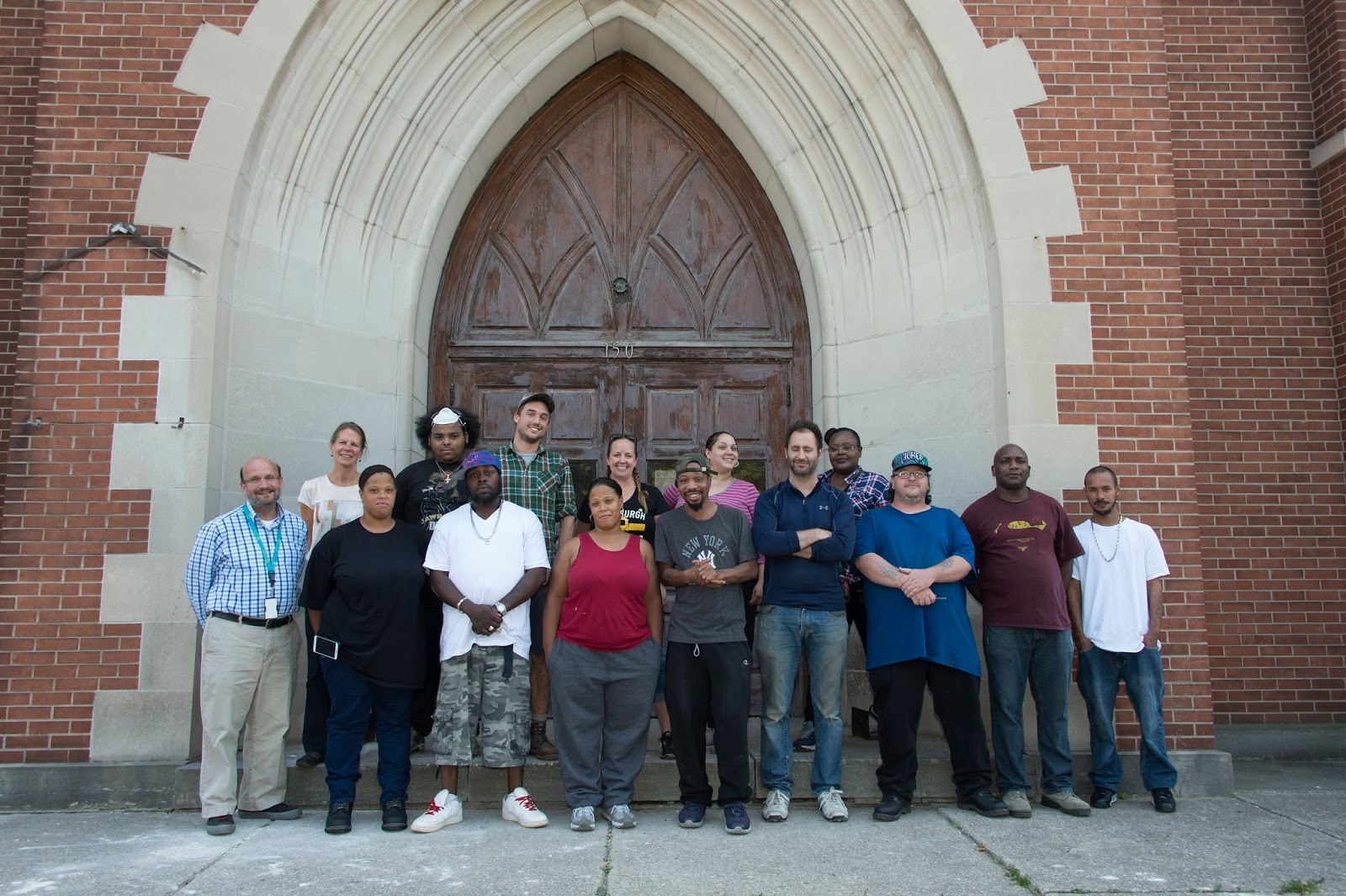 |
| The first class of SACRA Students |
Since the first class’ graduation several weeks ago, seven students have been offered positions for which they would not have been considered before participating in SACRA. The remaining students continue to interview and work towards full-time employment.
It is unusual for a museum to work in the realm of workforce development but we have discovered that what makes our approach different also makes it effective. Rather than simply connecting students with a 9 to 5 job, SACRA emphasizes craftsmanship and artistry, imbuing work with a sense of dignity and purpose. Already, this program has been more successful in terms of job placement than just about any other the Department of Social Services has been involved with. We anticipate that as it grows, the program will provide long-term benefits for the students and for our community.
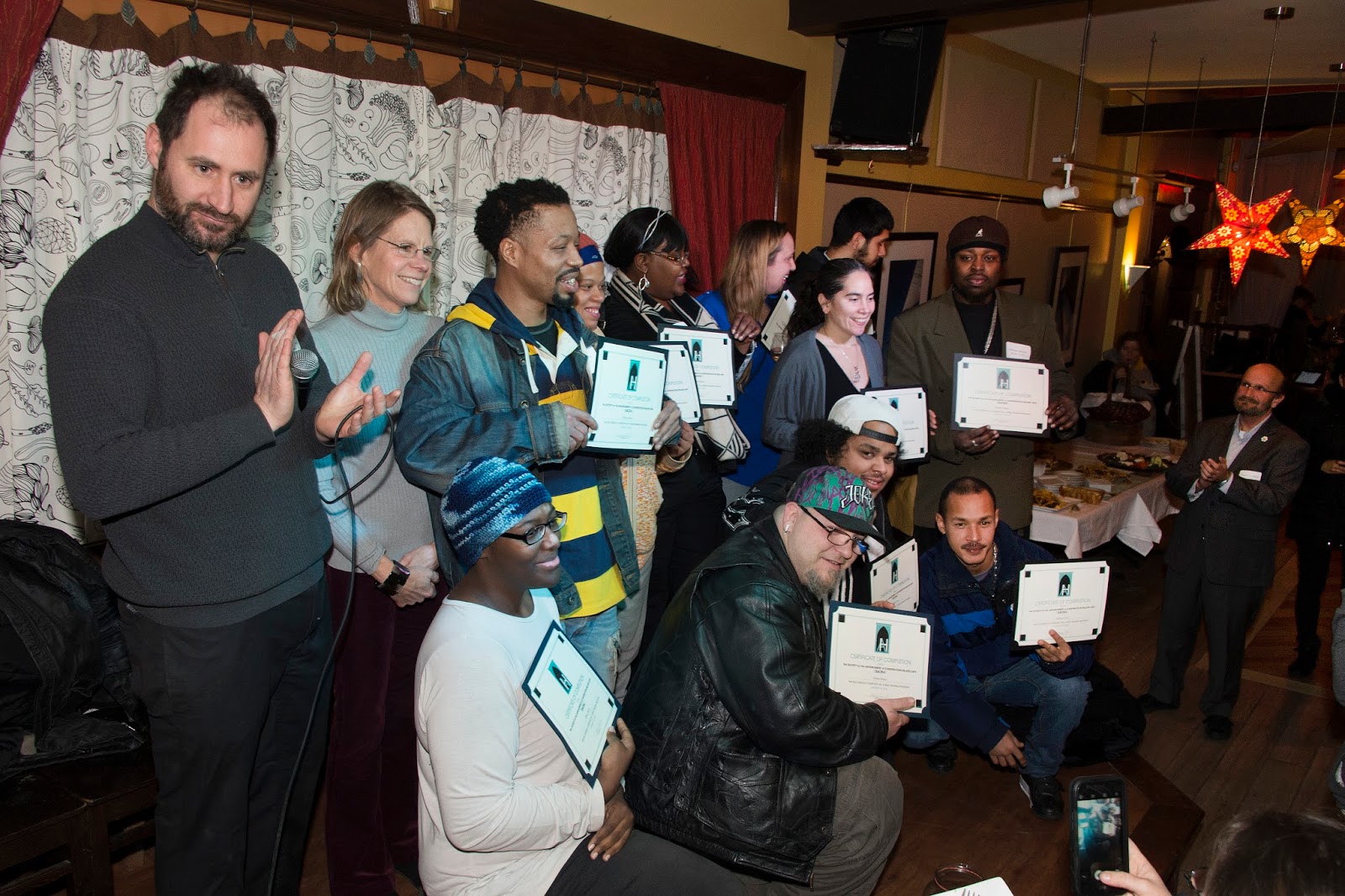 |
The program’s graduates with Dennis Maher
after having received their certificates |
Erin Sheets is Manager of Major Gifts at the Albright-Knox Art Gallery in Buffalo, NY, and her colleague Russell Davidson is Innovation Lab and Special Projects Manager.
Elizabeth Merritt

